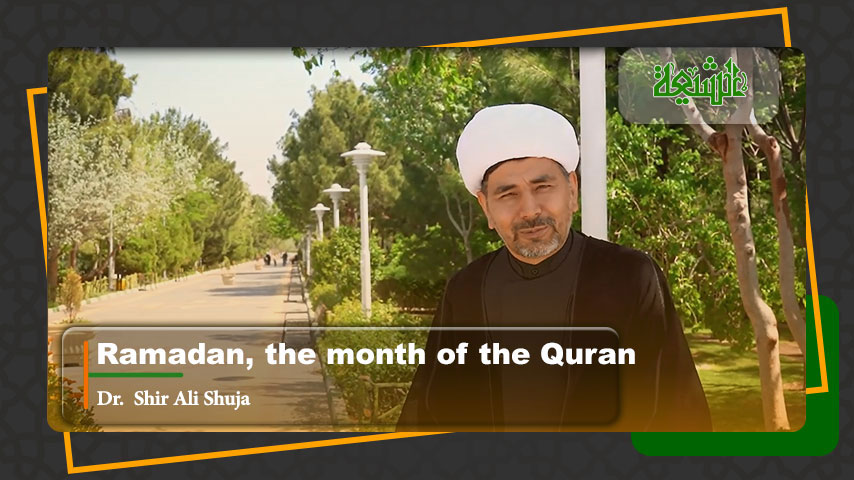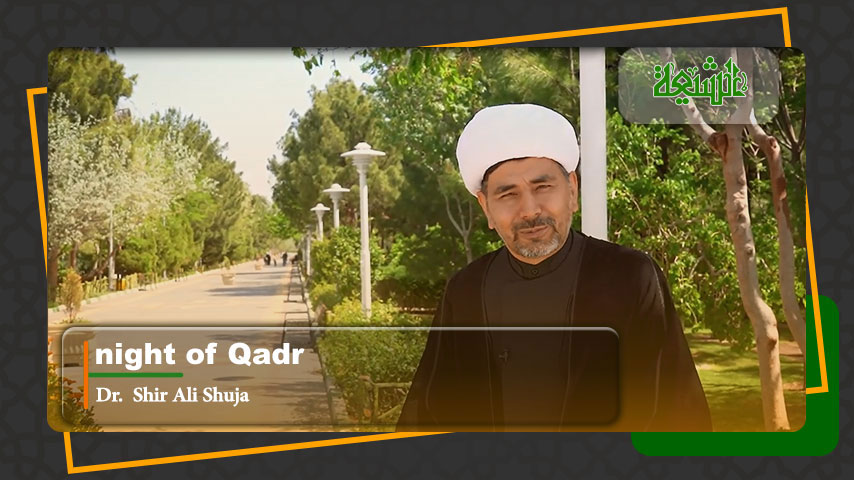In this part of the article titled “Nahj al-Balaghah and Its Spiritual Teachings”, we shall continue our discussions on “Zuhd” (abstention) as one of the important themes of Nahj al-Balaghah here.
The Zahid and the Monk
We said that Islam encourages zuhd but condemns monasticism. Both the zahid and the ascetic monk seek abstinence from pleasures and enjoyment. But the monk evades life in society and the responsibilities and duties it entails, regarding them as the low and mean facets of worldly existence and taking refuge in mountains or monasteries. On the other hand, the zahid accepts society with its norms, ideals, duties, and commitments. Both the zahid and the monk are otherworldly, but the zahid is socially otherworldly.
Also, their attitudes to abstinence from pleasures are not identical; the monk disdains hygiene and cleanliness and derides married life and procreation. The zahid, on the contrary, considers hygiene and cleanliness, matrimony and parenthood to be a part of his duties. Both the zahid and the monk are ascetics, but whereas the ‘world’ renounced by the zahid is indulgence and immersion in pleasures, luxuries, and comforts (he rejects the attitude which considers them to be life’s ultimate goal and objective), the ‘world’ renounced by the monk includes life’s work and activity, and the duty and responsibility which go with social life. That is why the Zahid’s zuhd operates in the midst of social life, and is, therefore, not only compatible with social responsibility and commitment but is moreover a very effective means of discharging them.
The difference between the zahid and the monk arises from two different world outlooks. From the viewpoint of the monk, this world and the next are two different spheres, separate from and unrelated to each other. To him, happiness in this world is not only independent of happiness in the next but is incompatible with it. He considers the two forms of happiness as irreconcilable contradictions. Naturally, that which leads to felicity and happiness in this world is considered different from the works and deeds which lead to success in the Hereafter. In other words, the means of acquiring happiness in this world and the next are regarded as incompatible and contradictory. It is imagined that a single work and action cannot simultaneously be a means for acquiring happiness in both worlds.
But in the worldview of the zahid, the world and the Hereafter are interconnected. The world is a preamble to the Hereafter. It is a farm of which the Hereafter is the harvest. From Zahid’s viewpoint, that which gives order, security, uprightness, prosperity, and flourishing to life is an application of other-worldly criteria to the life of this world. The essence of felicity and happiness in the other world lies in the successful accomplishment of commitments and responsibilities of this world, performed with faith, piety, purity, and taqwa. In truth, Zahid’s concept of zuhd and the monk’s rationale for his asceticism are incompatible and contradictory to each other. Basically, monasticism is a deviation introduced by men into the teachings of prophets, due to ignorance or vested interests. Now we shall explain the philosophy of zuhd in the light of the teachings of the Islamic texts.
Zuhd and Altruism
One of the ingredients of zuhd is altruism. Ithar (altruism) and atharah (egoism) are derived from the same root. Atharah means giving precedence to one’s interests over those of others. In other words, it implies monopolizing everything for oneself and depriving others. But Ithar means preferring others over oneself and bearing hardship for the comfort and good of others. The zahid, by virtue of his simple, humble, and content living, is hard upon himself so that others may live with ease. He sacrifices for the sake of the needy because with his sensitive heart which feels the pains of others he can relish the world’s bounties only when there does not exist a single man oppressed by need. He derives greater satisfaction by feeding and clothing others and working for their ease than if he did those things for himself. He endures deprivation, hunger, and pain, so that others may be well-fed and live without hardships.
Ithar represents the most majestic and sublime manifestation of human greatness, and only very great human beings climb to its noble heights. The Holy Quran refers to the episode of the self-sacrifice of Imam Ali (a) and his honoured family in the glorious verses of the Surat Hal ata. ‘Ali, Fatimah, and their sons once gave away whatever they had -which were no more than a few loaves of bread- to the poor for the sake of God, and despite their own distress. That is why this story circulated among the angels and a verse of the Quran was revealed in the praise of their act.
Once when the Holy Prophet came to visit Hadrat al-Zahra, observing that his daughter had put on a silver bracelet and hung a new curtain on the door, signs of unease appeared upon his face. Al-Zahra (‘a) was quick to discern the cause of her father’s reaction. When the Prophet (‘s) left, without losing time, she took out her bracelet and removing the curtain from the door, sent them to be carried to the Prophet (‘s) so that he might give them to the needy. When al-Zahra’s messenger brought them to the Prophet (‘s) he looked at them with amazement. He was glad that his daughter had taken the hint and foregone her simplest luxuries for the benefit of others.
‘The neighbours first’, was the maxim in the household of Imam Ali (a) and Fatimah (‘a). In khutbah 193, which describes the qualities of the pious, Imam Ali (a) says: The man of [taqwa] subjects his own self to hardships so that the people may live in comfort. The Holy Quran describes the Ansar (the Helpers), who in spite of their poverty welcomed the Muhajirun (the Emigrants) as their own brethren, giving them preference over their own selves, in these words: They love whosoever has migrated to them, not finding in their breasts any need for what they have been given, and prefer others above themselves, even though poverty be their lot … .(1)
Obviously, the altruistic ingredient of zuhd comes into play only under certain conditions. In an affluent society, altruism is less frequently required. But in conditions where poverty and deprivation are prevalent-as in the society of al-Madinah during the Prophet’s time-its need is greater. This is one of the secrets of the apparent difference in the lifestyles of Imam Ali (a.s) and the Holy Prophet (s.a.w.a) with the rest of the Imams (a.s). In any case, zuhd with its underlying altruistic motives has nothing in common with monasticism and escape from society; instead, it is a product of man’s gregarious instincts and a manifestation of his noblest feelings, which reinforce the social bonds between fellow human beings.
Continue in the next article: ( Nahj al-Balaghah and Its Spiritual Teachings (7) )
NOTE:
______________________________________
Qur’an 59:9.
















